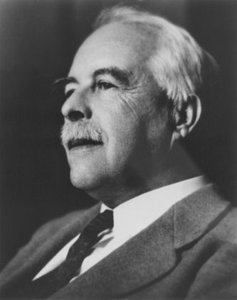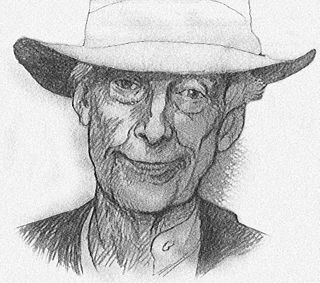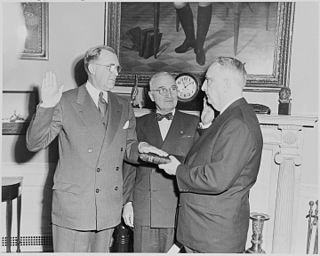A Quote by Gilbert Newton Lewis
In the snobbery of science, each branch attempts to rise in the social scale by imitating the methods of the next higher science and by ignoring the methods and phenomena of the sciences beneath.
Related Quotes
It seems perfectly clear that Economy, if it is to be a science at all, must be a mathematical science. There exists much prejudice against attempts to introduce the methods and language of mathematics into any branch of the moral sciences. Most persons appear to hold that the physical sciences form the proper sphere of mathematical method, and that the moral sciences demand some other method-I know not what.
Instruction in academia did not emphasize what I thought of as essential points. I was interested in the broad range of interrelated connections within the physical sciences, but formal studies isolated each branch of science.” I feel that I have advantages greater than Da Vinci’s such as access to more information, materials, and methods.
It means that we must abandon the method of civil disobedience, non-cooperation and satyagraha. When there was no way left for constitutional methods for achieving economic and social objectives, there was a great deal of justification for unconstitutional methods. But where constitutional methods are open, there can be no justification for these unconstitutional methods. These methods are nothing but the Grammar of Anarchy and the sooner they are abandoned, the better for us.
After years of work in both areas of study, I concluded that the social sciences were different, in many important ways, from the natural sciences, but that the same scientific methods were applicable in both areas, and, indeed, that no very useful work could be done in either area except by scientific methods.
If you look at any leaf on any tree branch, it's similar to but not exactly a repetition of the previous branch. So the new science of complexity or showing how an architecture can be produced just as quickly, cheaply and efficiently by using computer production methods to get the slight variation, the self-similarity.
There are a whole other range of sciences that must deal with the narrative reconstruction of the inordinately complex events of history that can occur but once in their detailed glory. And for those kinds of sciences, be it cosmology, or evolutionary biology, or geology, or palaeontology, the experimental methods, simplification, quantification, prediction and repetition of the experimental sciences don't always work. You have to go with the narrative, the descriptive methods of what? Of historians.
We are living in a society that is totally dependent on science and high technology, and yet most of us are effectively alienated and excluded from its workings, from the values of science, the methods of science, and the language of science. A good place to start would be for as many of us as possible to begin to understand the decision-making and the basis for those decisions, and to act independently and not be manipulated into thinking one thing or another, but to learn how to think. That's what science does.
Some people hate the very name of statistics, but I find them full of beauty and interest. Whenever they are not brutalized, but delicately handled by the higher methods, and are warily interpreted, their power of dealing with complicated phenomena is extraordinary. They are the only tools by which an opening can be cut through the formidable thicket of difficulties that bars the path of those who pursue the Science of Man.
In my work, I am not attempting to predict the future. I am only pointing out what is possible with the intelligent application and humane use of science and technology. This does not call for scientists to manage society. What I suggest is applying the methods of science to the social system for the benefit of human kind and the environment.
Whether moral and social phenomena are really exceptions to the general certainty and uniformity of the course of nature; and how far the methods, by which so many of the laws of the physical world have been numbered among truths irrevocably acquired and universally assented to, can be made instrumental to the gradual formation of a similar body of received doctrine in moral and political science.
Most people don't put things together. Geologists study the surface of the earth and geological phenomena. Meteorogists study the weather. That isn't science. Science is the study of all things that affect human beings. They have to be together! A meteorologist has difficulty talking with a sociologist, because they don't understand each other. You can't teach sciences in 'bits'; you have to bring it all together. Science is a way of thinking - a way at arriving at conclusions without your own opinion in it.
Yet things are knowable! They are knowable, because, being from one, things correspond. There is a scale: and the correspondence of heaven to earth, of matter to mind, of the part to the whole, is our guide. As there is a science of stars, called astronomy; and science of quantities, called mathematics; a science of qualities, called chemistry; so there is a science of sciences,--I call it Dialectic,--which is the Intellect discriminating the false and the true.
Historical science is not worse, more restricted, or less capable of achieving firm conclusions because experiment, prediction, and subsumption under invariant laws of nature do not represent its usual working methods. The sciences of history use a different mode of explanation, rooted in the comparative and observational richness in our data. We cannot see a past event directly, but science is usually based on inference, not unvarnished observation (you don't see electrons, gravity, or black holes either).
The invocation of science, of its ground rules, of the exclusive validity of the methods that science has now completely become, now constitutes a surveillance authority punishing free, uncoddled, undisciplined thought and tolerating nothing of mental activity other than what has been methodologically sanctioned. Science and scholarship, the medium of autonomy, has degenerated into an instrument of heteronomy.


































